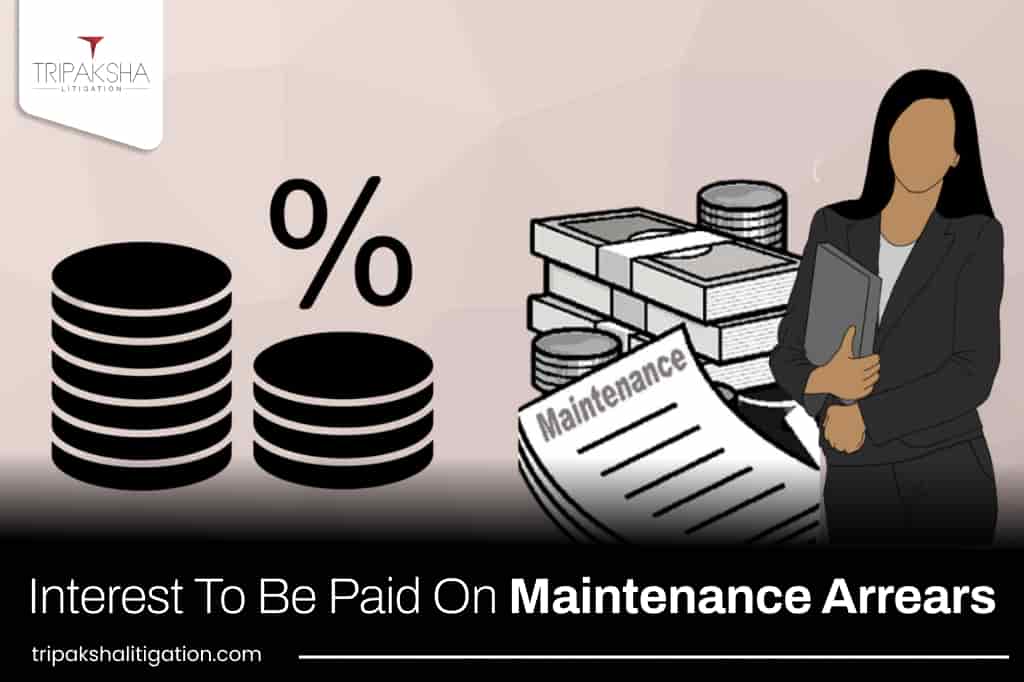PRAKASH V. VITHABAI & ANR, 2024 SCC ONLINE BOM 1487
The Hon’ble High Court of Bombay recently in a case wherein the husband preferred revision against the decision of the Family Court in Aurangabad seeking the cancellation of maintenance payments upheld the trial court’s judgment in increasing the maintenance. Furthermore, the court emphasized the importance of District Courts awarding interest on maintenance amounts to ensure timely disbursement to the weaker sections of society.
Facts:
The case stemmed when the respondents filed for maintenance under Section 125 of the Criminal Procedure Code, 1973 (Cr.P.C). Initially, the wife and son received maintenance of Rs.1500/- and Rs.2000/- per month, respectively. The husband/applicant contended that his wife was employed in the private sector, earned between Rs 12,000/- to Rs 15,000/- monthly and had obtained the maintenance order by concealing this relevant information. Thus, he sought the cancellation of the maintenance order. However, the wife argued for an increase in maintenance, citing the need for additional funds to cover her son’s educational expenses.
The trial court determined that the husband failed to demonstrate a change in circumstances justifying the cancellation of maintenance, while the respondents successfully proved the need for an enhanced maintenance amount. Accordingly, the trial court increased the monthly maintenance by Rs.1000/- and Rs.1500/- Per month respectively i.e., total amount of Rs.3500/- Per Month.
Held: The Court scrutinized the husband’s primary objection, which revolved around the wife allegedly filing fabricated false documents and working under a false identity at Amoli Services, Aurangabad, as “Shalini Prakash Dheple” and earning salary from the same. However, the court found these objections untenable, noting that discrepancies in the wife’s name were due to her marital status.
Regarding the maintenance amounts initially awarded, the court deemed them insufficient for the respondents’ sustenance. It emphasized that the husband, being able-bodied and the family’s provider, could not evade his responsibility solely because the wife was employed. Additionally, the court clarified that non-disclosure of income did not negate the right to maintenance under Section 125 of Cr.P.C, emphasizing the summary nature of proceedings under this section.
Drawing from the precedent set in Rajnesh v. Neha, the court concluded that the wife’s failure to disclose her income didn’t amount to perjury under Section 340 of Cr.P.C. It reasoned that adopting such a stance would necessitate similar treatment for all parties concealing income, which wasn’t practical. Ultimately, the court upheld the trial court’s decision, finding no errors or impropriety in its judgment.
The court also addressed the issue of interest on maintenance arrears, highlighting the lack of legal barriers to awarding interest. It stressed the importance of timely maintenance payments, especially for vulnerable individuals, and mandated the awarding of interest on maintenance amounts to expedite justice for the weaker sections of society.
Conclusion: the Bombay High Court affirmed the trial court’s decision, dismissing the husband’s appeal and ordering interest payments on maintenance arrears to ensure swift justice for the marginalized sections of society.
The crux of the matter lies in the husband’s challenge to the maintenance order granted to his wife and son by the Family Court in Aurangabad. His contention primarily revolves around the alleged suppression of material facts by the wife regarding her employment status and income, which he claims led to the erroneous grant of maintenance. Conversely, the wife argues for an increase in maintenance to meet the educational expenses of their son.
However, upon scrutiny, the court finds the allegations levelled by Husband unsubstantiated and dismisses them, emphasizing the need for credible evidence to support such claims. Furthermore, the court underscores the husband’s obligation to provide maintenance to his family, irrespective of the wife’s employment status.
The court’s reliance on precedent, particularly the case of Rajnesh v. Neha, underscores the principle that non-disclosure of income, while relevant, does not automatically invalidate the right to maintenance. It emphasizes the need for equitable treatment and highlights the impracticality of penalizing individuals for non-disclosure without consistent application across similar cases.
In addition to addressing the substantive issues of the case, the court also delves into the procedural aspect concerning the award of interest on maintenance arrears. It observes a prevailing reluctance among trial courts to award interest, despite the absence of any legal prohibition. Recognizing the detrimental impact of delayed maintenance payments on vulnerable individuals, the court mandates the award of interest to expedite justice and secure the rights of the weaker sections of society.
In conclusion, the Bombay High Court’s ruling in the aforementioned case exemplifies its commitment to upholding the rights of dependents and ensuring timely and effective access to maintenance. Through its meticulous analysis, adherence to legal principles, and emphasis on equitable treatment, the court sets a precedent for the fair adjudication of maintenance claims, thereby advancing the cause of justice and welfare for the weaker sections of society.

